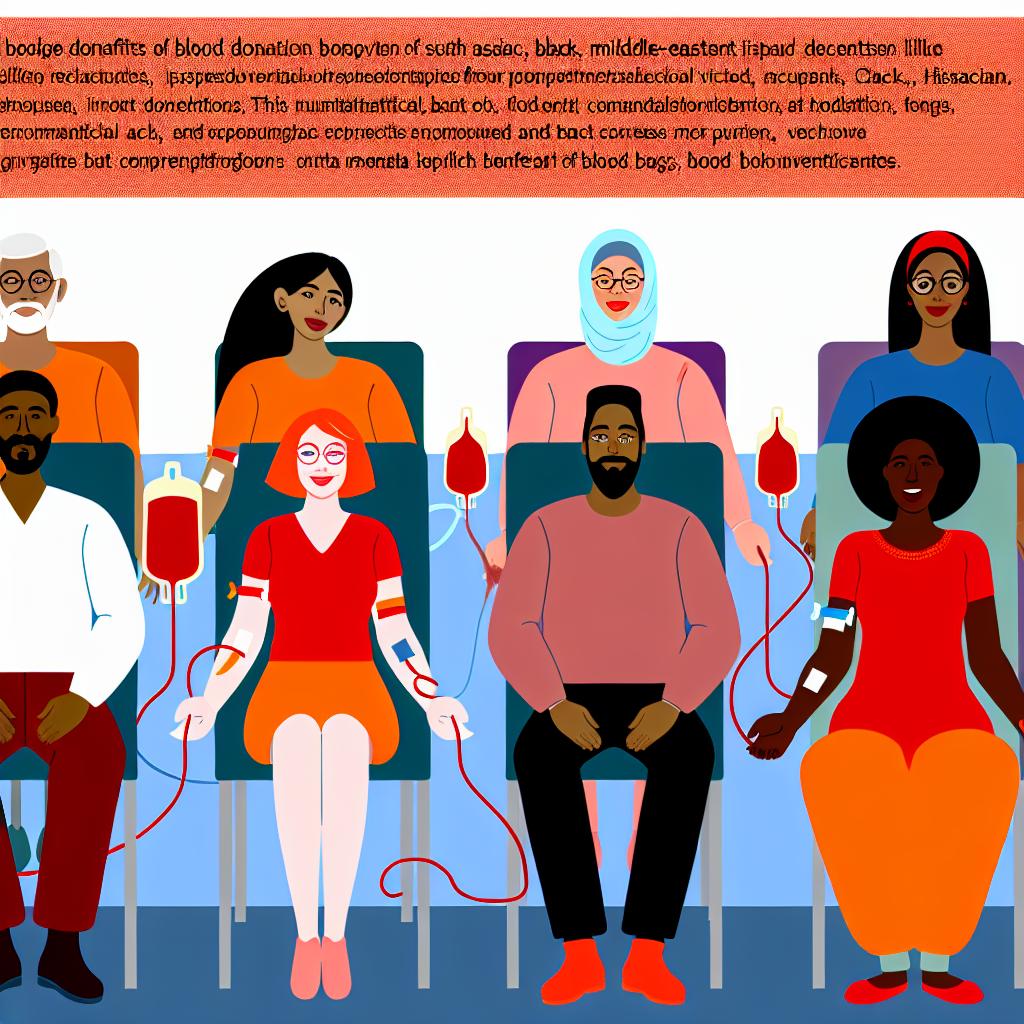The Psychological Benefits of Blood Donation
Blood donation is often emphasized for its direct impact on saving lives and supporting medical treatments. However, it also offers several psychological benefits to donors. Through donating blood, individuals may experience a range of emotional and mental health advantages that contribute to overall well-being.
Sense of Purpose and Fulfillment
Engaging in blood donation can create a sense of purpose as individuals become part of something greater than themselves. By contributing to a life-saving cause, donors often report feeling more fulfilled, knowing their actions can potentially save multiple lives. This sense of purpose can lead to improved mental health, enhancing feelings of self-worth and competence. By participating in these altruistic activities, donors acquire a stronger connection to their community, observing firsthand that their small acts can lead to significant global impacts. With each donation, they realize they are making a positive change, which reinforces the understanding that every individual action matters.
Donors also find themselves more engaged in discussions within their communities about health and social responsibility. As these interactions increase, individuals may find that their roles expand beyond simply donating blood. Over time, they might become advocates for the cause, further deepening their sense of involvement and commitment to societal health. This evolving role can be incredibly empowering, offering a sustained feeling of fulfillment.
Reduction in Stress and Anxiety
Participating in altruistic activities, such as blood donation, has been linked to a reduction in stress and anxiety. The act of giving can promote a sense of calm and relaxation. Donors often experience reduced stress levels knowing they are helping others in need. This act of kindness and focus on others can serve as a distraction from personal worries, contributing to an overall sense of calm. When individuals take time out of their day to focus on the needs of others, they naturally shift their attention away from personal stressors.
Moreover, the structured environment of blood donation centers, with their organized processes and professional support, provides a temporary escape from the often chaotic and unpredictable nature of daily life. In these spaces, donors can find solace and clarity, even if for a short period, in knowing they are participating in a straightforward and impactful task.
Increased Social Connection
Blood donation often requires interaction with healthcare professionals and other donors, providing opportunities for social connection. Engaging with a community of like-minded individuals, who are also committed to helping others, can enhance social networks and build a sense of camaraderie. These social interactions can be particularly rewarding, offering psychological support and a shared sense of community. Over time, these connections might evolve into long-term friendships or professional networks centered around social contributions and volunteerism.
These social networks often grow beyond the walls of the donation center. Participants might find themselves involved in broader community events, leading to increased engagement in local initiatives. The shared goal of improving public health through blood donation can serve as a powerful unifying factor, dissolving social barriers and fostering inclusive environments.
Boost in Mood
The act of donating blood can lead to an increase in positive emotions and mood enhancements. Engaging in activities that help others is often associated with the release of endorphins, the body’s natural mood elevators. This “helper’s high” leads to feelings of happiness and contentment, further supporting mental health and emotional well-being. The surge of endorphins can create an uplifted feeling, akin to those experienced after exercise or meditation.
Moreover, the sense of accomplishment following a successful donation is a potent emotional boost. Knowing that their blood will contribute to saving lives and helping those in medical need instills a robust sense of gratitude and satisfaction. These feelings collectively foster a positive outlook on life, while also encouraging further participation in similar altruistic activities.
Developing Empathy and Compassion
Donating blood encourages individuals to consider the experiences and needs of others, fostering greater empathy and compassion. By understanding the significance of their donations and the impact on recipients, donors often develop a deeper appreciation for the challenges faced by others. This empathy can enhance emotional intelligence and promote healthier interpersonal relationships. The act of considering others’ hardships can reshape one’s understanding of societal structures, urging individuals to take actionable steps toward meaningful change.
As donors regularly commit to this practice, they may also become more attuned to various social issues beyond healthcare. This expanded awareness can lead to increased involvement in diverse volunteer efforts, as empathy cultivated through blood donation translates into broader social engagement. Interpersonal relationships benefiting from enhanced empathy can experience increased trust, improved communication, and deeper emotional connections.
Encouragement of Overall Health Awareness
Regular blood donation can often lead to an increased awareness of one’s personal health. As part of the donation process, individuals undergo basic health screenings, such as checking blood pressure and hemoglobin levels. These screenings can encourage donors to maintain healthier lifestyles and be more mindful of their health, indirectly supporting mental wellness by empowering individuals to take charge of their well-being.
Through these mandatory health checks, donors receive valuable insights into their physical health status, often prompting healthier lifestyle choices regarding diet, exercise, and general wellness practices. This heightened health awareness can become an integral part of their daily lives, leading to long-term health improvements. Moreover, participation in regular health assessments as part of the donation process helps demystify the medical process, which can be intimidating for some individuals.
In conclusion, beyond the immediate medical benefits, blood donation offers significant psychological advantages. From reducing stress and anxiety to boosting social connections and empathy, the act of donating blood provides donors with numerous emotional rewards that contribute positively to their mental health. By integrating these aspects, individuals who donate blood not only experience personal growth but also contribute to the cultivation of a more empathetic and interconnected society. Regular engagement in blood donation processes not only supports physical health improvements but also furthers mental clarity and emotional resilience.
